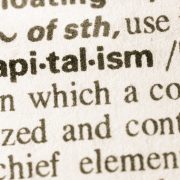Every self-respecting capitalist, it seems, is rushing to the aid of capitalism. James Dimon, chief executive of JPMorgan Chase, and Ray Dalio, founder of Bridgewater Associates, the world’s biggest hedge fund, both made headlines recently with eye-catching observations on the troubled condition of the U.S. economy. Mr. Dalio’s mood is apocalyptic: “I believe that all good things taken to an extreme can be self-destructive and that everything must evolve or die,” he wrote recently. “This is true for capitalism.”
In California this week at the annual shindig orchestrated by another Master of the Universe, Michael Milken, the expansive jamboree that started out life as the “Predators’ Ball” in the heyday of leveraged buyouts has for years been the Milken Institute Global Conference. This year, the theme was “Driving Shared Prosperity.” Everyone from Ivanka Trump to Christine Lagarde of the International Monetary Fund had ideas on how to make the modern free-market system fairer.
This surge in capitalist compassion is driven, of course, by real unease at rising inequality and the uneven access to opportunity in the U.S. It is given new urgency by what appears to be rising political pressure for far-reaching reform or, in the more fevered radical mind, the overthrow of capitalism.
The ideological weather in the Democratic Party is being made by the likes of Elizabeth Warren, Bernie Sanders and Alexandria Ocasio-Cortez, who urge massive income and wealth redistribution and a vastly expanded role for government. In the past six months alone, half a dozen books on how to fix capitalism have landed on my desk—from the radical progressive approach favored by Joseph Stiglitz, the Nobel Prize-winning economist and veteran of Democratic administrations, to the more market-friendly reforms proposed by Raghuram Rajan, a leading economist and former central banker who favors a renewed focus on the status of community in the modern economy.
All of this ideological and intellectual ferment reminds me of a cliché that President Bill Clinton repeated endlessly: “There is nothing wrong with America that cannot be cured by what is right with America.” This truism might have a contemporary application. What if the answer to capitalism’s current crisis is not socialism or social democracy but more capitalism?
I mean this partly in the sense that much of what is wrong with our current condition might not be a surfeit of capitalism but a deficit. We have a big-business, corporatist system in which a handful of companies dominate most sectors—powerful vested interests that protect their own turf, often at the expense of consumers. A true free-market economy would be more pluralist.
But there’s another sense in which, perhaps, more of the market rather than more of the government might be able to address the big social and economic challenges that dog the nation—the poor quality of education, lack of access to health care, unaffordable housing.
There is growing interest among enterprising investors in finding market-based solutions. Social entrepreneurship uses the resource-allocation efficiency of the market to target pressing social needs.
Take an organization like Kairos. It was founded a decade ago by Ankur Jain, a young University of Pennsylvania graduate who made a tidy sum in social media and believes that tech can be used to meet needs way beyond dating websites and videogames. “Technology at its best should help improve quality and democratize access,” Mr. Jain says.
Kairos has incubated five companies already, in fields such as housing and child care. The organization also seeks to fill market gaps by bringing together leaders from the public and private sectors. Earlier this year, I attended a fascinating gathering it organized in Dubai with CEOs, cabinet members, NGO leaders and investors.
No one is suggesting that all market failures can be fixed by the private sector. Throughout history, most of the larger ones have been addressed by government intervention—welfare programs, regulation, major infrastructure projects.
But history is also full of examples of social needs being met by the spirit of capitalist invention. If investors and innovators are given incentives, there’s every chance that the next Uber could be a business that offers access to affordable housing for the indigent or low-cost health insurance.
After all, for all its flaws, capitalism has solved far more of these problems, for at least a century and half, than socialism has.
This article appeared at wsj.com on May 3, 2019.













